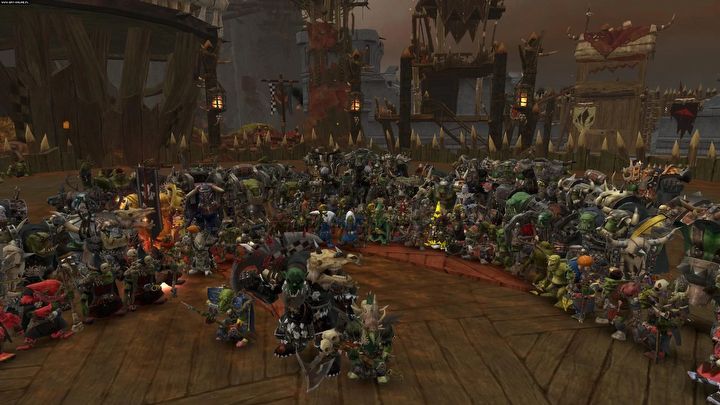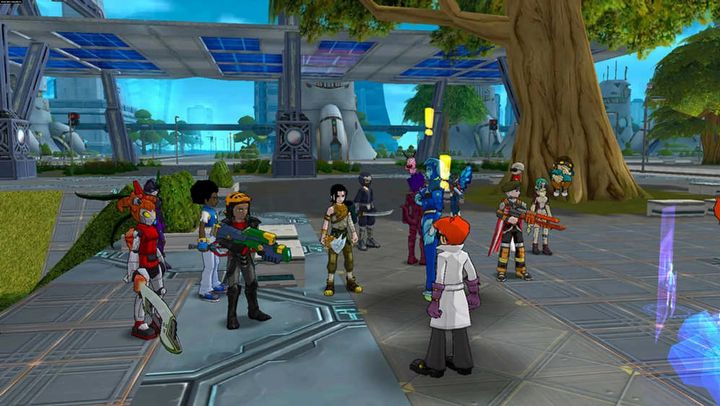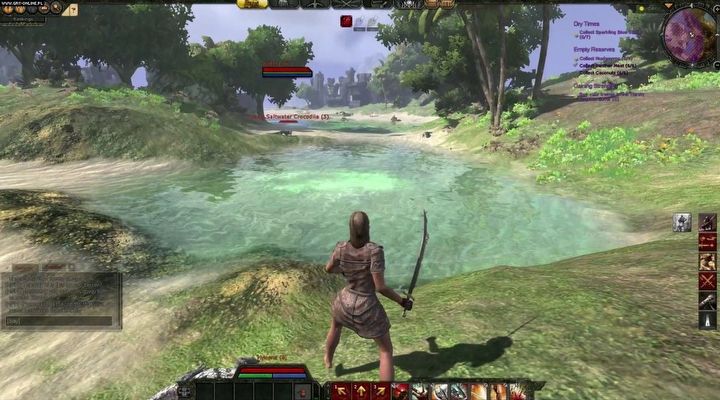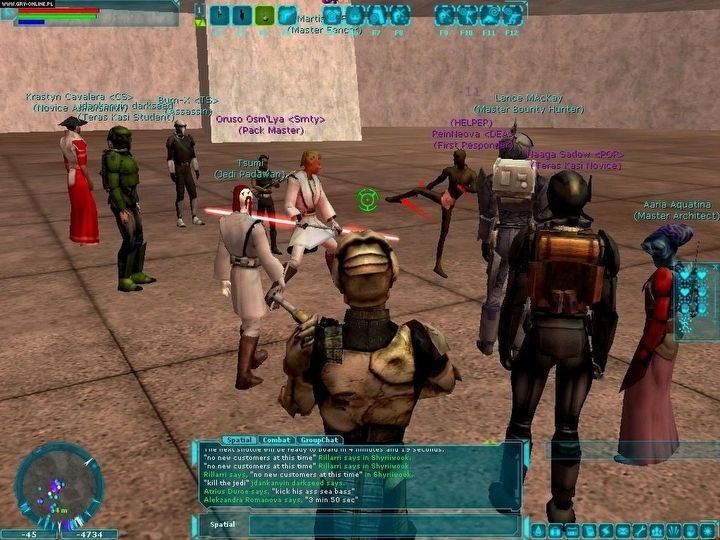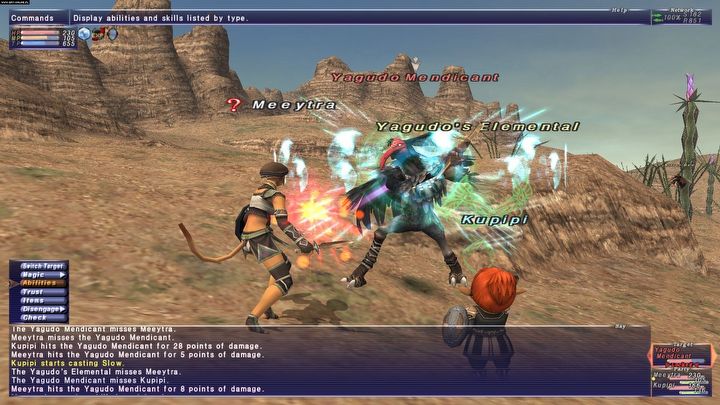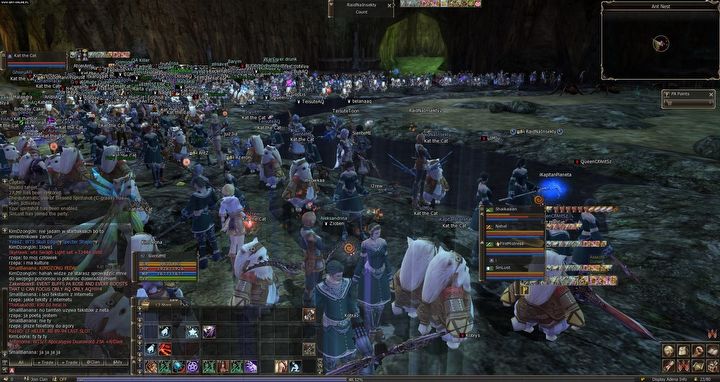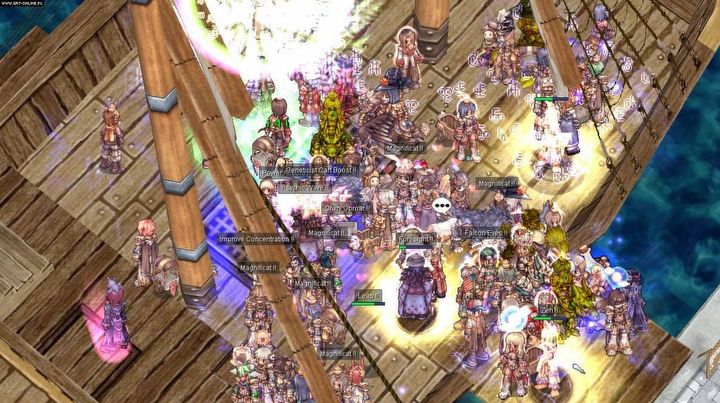Why Are People Playing Dead MMO RPGs? I've Checked, and It's More than Nostalgia
Does an MMO need thousands of players to be fun? Some of the communities prove otherwise. Sometimes, a hand full of players is enough to make a given title feel alive. And it's not always about nostalgia.
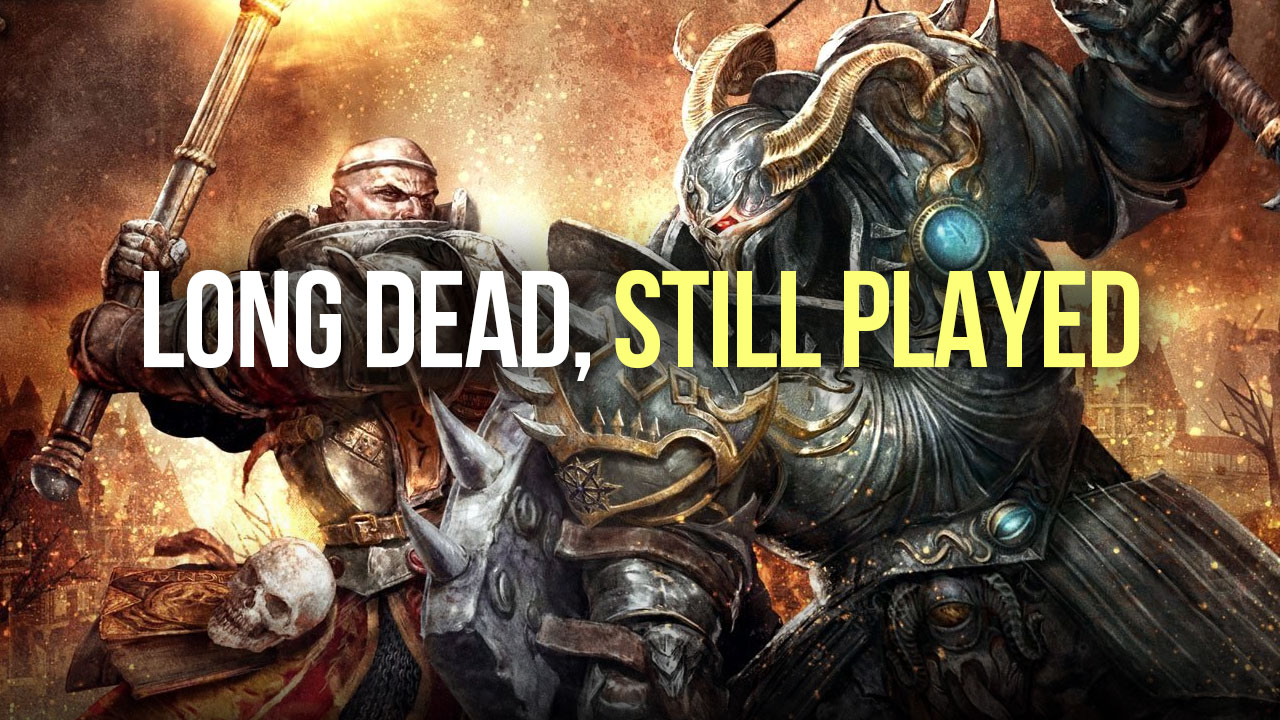
Have you ever wondered why some people are still playing Age of Empires 2 in 2023? Or why Morrowind is still popular? What makes players dedicate their free time to playing old games? The answer is simple – it's nostalgia. And I could end the subject here, but that would mean taking the easy way out. Therefore, I went to the MMO necropolis to delve into this issue and try to understand this supposedly "boomer" passion for good, old games.
A unique world beckons
MMO games are considered dead once they stop being supported or lose popularity. In the first case, the developers usually inform about the transition to the so-called "maintenance mode," i.e. the shutdown of the servers. In the second scenario, the game is theoretically alive, but under life-support. It may seem that both of these situations are perfect opportunities to bid farewell to a particular title and allow it to depart forever. However, some people cannot come to terms with losing their beloved games – so they faithfully stick with them until the very end, or and even one day longer.
My favorite example is Warhammer Online: Age of Reckoning, which was shut down in 2013. The title was brought back to life by the community and is now called Return of Reckoning. You can still play it, completely legally, and what's more, for free. Warhammer Online, resurrected from the dead, has been around since 2014 and is still being developed. What's more, it even gets some original novelties!
Is nostalgia the only reason that attracts us to this game? It turns out that no, because many players have never heard of a game like Warhammer Online before. Only now are they coming to the server and staying for longer. The main driving force behind this game is its distinctive atmosphere. There is no other MMORPG set in the world of Warhammer. At least for now, but then nothing new is looming on the horizon.
Additionally, this title places a strong emphasis on faction warfare, for which several mechanics have been developed. Such unique elements, by the way, are also a common reason for resurrecting games or revisiting them. So if this title was (is!) so unique, why did it flop? Warhammer Online lacked endgame content, and the game was released all too soon. The staggering number of bugs and slow pace of development turned out to be the last straw, which – as can be seen from the example of the game in question – doesn't stop everyone.
I'll also mention that Cartoon Network also had its MMO called FusionFall. There was also Matrix Online, which was quite popular at some point. The list of games based on well-known IPs is much longer, but virtually no such title has stood the test of time. And that's despite being brought back to life by the fans. Nevertheless, if someone carefully searches, they'll find a private server with a handful of dedicated players.
Unique mechanics and solutions
Ultima Online is an example of an MMORPG unrivaled in terms of ingenuity and the possibilities it offers. The glory days of this title are long gone, and it's now just a mere shadow of its former self. Despite this, private servers are still being created, attracting many players. I even had the pleasure of writing about one of them. And the reason for its popularity? It’s the freedom that this game offers and that’s hard to find anywhere else. Of course, the price for this is a poor gameplay balance, but let's admit that this is part of the charm of Ultima Online. You can literally become whoever you want in this game.
The same goes for Age of Conan, which hasn't been developed for years, and whose servers are maintained only for a handful of players. However, they refuse to switch to the survival game Conan Exiles, claiming that this MMO is their thing. I somewhat understand this because such a brutal world and unique combat system cannot be found in other titles. The community is well aware that it has been abandoned, but continues to organize its own events and attractions. Players never stop believing in a better fate.
Due to its unique mechanics, Star Wars Galaxies was also revived. Although this isn't a fully legal project and remains in the copyrights’ grey zone, it attracts people interested in the first MMO from the Star Wars universe. In this case, the main reason isn't the universe (this function is better fulfilled by the still-breathing Star Wars: The Old Republic) but the originality of the mechanics and solutions. Becoming a Jedi knight was quite a challenge here.
Less means better
I came across opinions stating that the fewer people play a particular MMORPG, the better. These players demonstrate an immense commitment to a title that isn't mainstream. They care. They invest their free time and create a close-knit community. In a group where everyone knows each other, it's easy to assume a role, but not necessarily a positive one. Such games often have their own organized gangs of marauders, as well as teams of guards. Today, it's difficult to find something like that in big titles because they're developed differently and may lack the appropriate tools for that.
This is also an argument of some players – modern MMORPGs are significantly different from older games. The older players in the genre offer different solutions and are focused on cooperation. Today, there’s an emphasis on individual self-sufficiency, and group activities don't require as much interaction. That’s why many people still play Final Fantasy XI or Anarchy Online. Sometimes, we forget that it's not about quantity, but about quality – at least for some.
During my tour of the MMO necropolis, I repeatedly asked myself, and others, the question: how many users does such an online game need to be considered alive – a hundred, a thousand, or maybe ten thousand? I haven't received a clear answer because everything depends on the approach of a particular person, the way a specific game was designed and what kind of gameplay it offers. Some people have convinced me that you can still have fun in Secret World Legends, even with only 50 players on the server. By the way, I recommend this production if you're looking for something I call "urban fantasy," with a hint of Cthulhu vibes.
MMO is a second life
The aforementioned nostalgia plays an equally prominent role in keeping the games alive. Some people don't want to keep up with the times and still play Lineage 2 based on old chronicles (updates), believing that the MMO was at its prime back then. Anyway, this is the reason behind the creation of numerous classic servers for various titles.
I have some fondness for Ragnarok Online, which I still recall warmly. Freedom in character building, various classes, acquiring cards from monsters, castle battles, and bosses. And also unique visuals! These are elements that cannot be replicated, although three productions tried to capture the spirit of this title: Ragnarok Online 2, Royal Quest, and Tree of Savior. Unfortunately, with meager results. Interestingly, its nemesis turned out to be its own self, namely the way it was developed, while at the same time squandering its potential. That's why I sometimes check out fan projects that revive the old version of this game.<br>
However, there is also a category of players who habitually log on to the account of a now-extinct title to chat with a bunch of friends. They are connected by years of playing together, and a given game has become a part of their lives. So it's hard to say "goodbye." They cling to the server so they don't create a void in their hearts that would have to be filled with something new. Especially since there’s no guarantee that the next game will be good enough.
Sounds dramatic? You would be surprised by how many people play MMORPGs only for the community. In theory, the community could transition to a more active title, but everyone knows that it wouldn't be the same, and the "magic" would evaporate. That's why Pirate101 and Wizard101 still have dedicated players.
Sometimes less, means more
I could conclude this tour with an obituary, but why should I do so if these games are still alive, if only in the hearts of a few fans? I must confess that when I ventured into the graveyard, I never expected to come across such a large number of devoted communities who have no qualms about indulging in necromancy. Initially, I dismissed this topic because how can you seriously treat a group of old geezers tightly clutching to a title long past its expiration date?
Instead, I discovered that I simply envy them. This commitment, dedication, and actual immersion in a given MMORPG. Not giving up, even though "everyone" has already written a game off. They prove that they play what they like, regardless of what others say. Does being old prohibit being fun? Generalizations like that don't matter. What matters is having a good time – and there’s no shortage of people willing to do so. You just need to look. It takes a bit of self-denial, and that's something an increasing number of players seemingly lack. For this reason, instead of looking at the quantity, let's focus on the quality – because sometimes, less means more.
